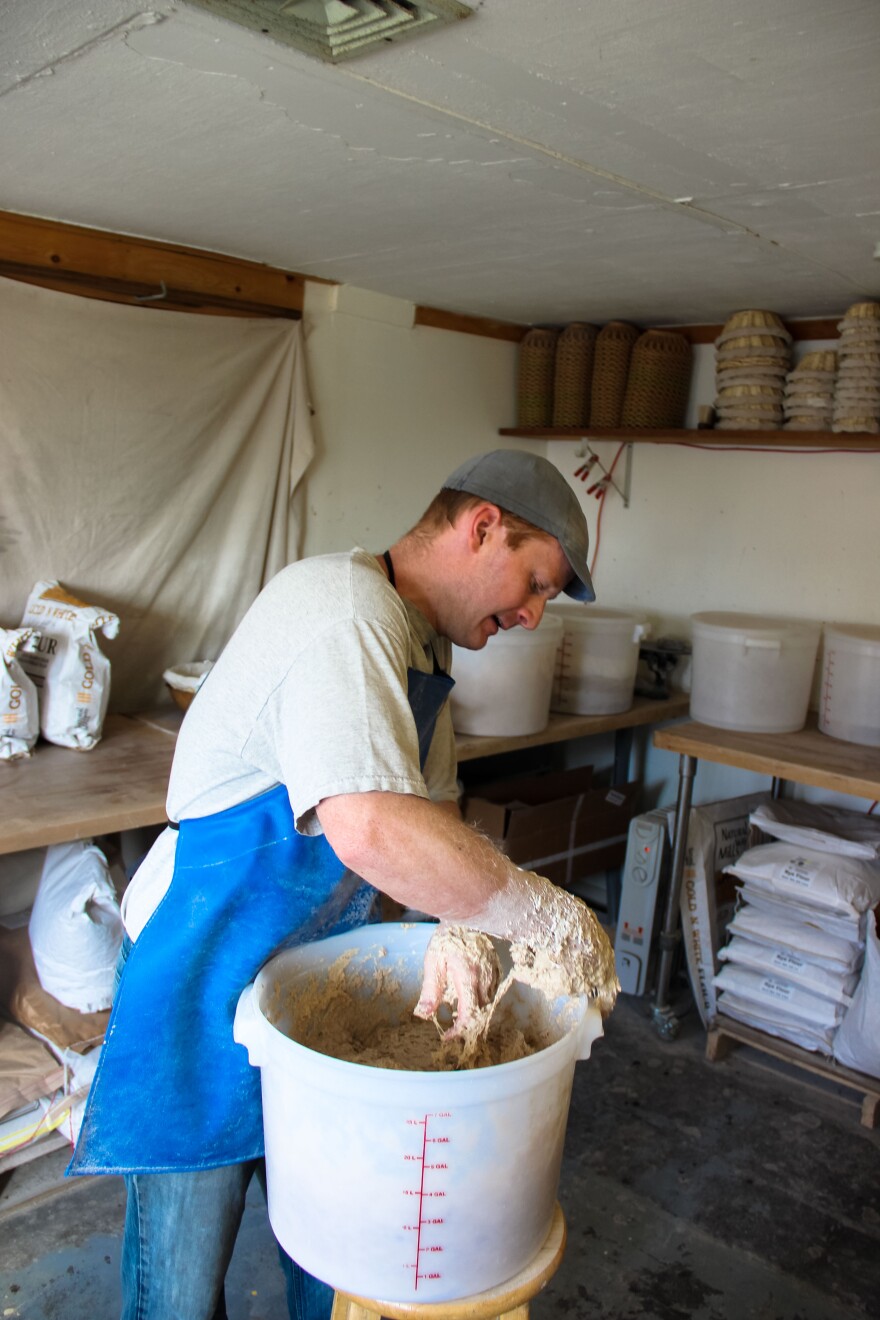Every week or so someone stops by Brookford Farm in Canterbury and finds the little building near the chicken coop where Dane Percy makes bread and asks him if he’ll teach them how to do it.
“Which just has a romance variable in it,” Percy says, “that I try to extinguish it as soon as possible by saying, ‘Well, can you use a chainsaw?’”
Listen to the story:

He’ll show his potential student how to load the freshly cut wood in the brick oven and then explain his two day bread making process.
“Day one when I’m doing the dough is the fire day,” Percy says, as he lights the wood in the oven.
Percy’s goal on fire day is to get the temperature sensor buried an inch deep in the upper dome bricks to climb over 600 degrees - then he lets the fire die. Because, as he says, “You don’t want fire in your bread oven. That’s a big misconception.”
If Percy’s would-be apprentice makes it past the chainsaw and fire lessons, he’ll show them how to mix dough by hand . A stage where, it seems, a little romance is reintroduced.
“I don’t want to overemphasize the spirituality of it,” he says, “but I certainly would say my deepest reasons for not having a mixer are spiritual. Yeah. I mean that sounds, when I say it, wicked campy, but I think that I want somebody in here…to just get worked…”

Getting worked by hand-mixing dough in five gallon buckets for hours at a time is how Percy got his start making bread.
“Unfortunately I had this existential crisis in my late twenties,” he recalls, “and I started baking bread rather than doing the thing I was doing.”
And the thing he was doing was oceanographic chemistry. But, he says, “I got stuck in a string of labs where it was just me and it was kind of isolating. I mean I have this bakery and I’m all by myself now but at the time it wasn’t conducive to where I wanted to be.”
So he left the ocean and moved to an intentional community in Pennsylvania, and for the next four years learned how to make bread from Saul and Natalie Schwartz.
“You have to understand,” he says, “that the two people that I was working with are probably the two most beautiful people I’ve ever met. So there was nothing but support from them the whole way to join them or do this somewhere else.”

Percy says the kind of bread he now makes comes by way of California, but follows along from an old European method. Which means the final rustic result can look a little unfamiliar.
“I gotta say - giving that to New Hampshire was very difficult,” he says. “Culturally there’s a certain appeal to tradition. Not that this is an untraditional bread. But it took a lot of conversations with my customers to let them know that everything is gonna be okay.”
Percy says the biggest obstacle his bread customers face is the darkness of his bread.
“Because the oven has the ability to hold a lot of heat which has the ability to give it a lot of color. I also like a lot of character on the bread.”
Making bread in this way is for Percy a bit like making art. “When you open that door and the bread is done and you’ve hit the mark, that’s a great day,” he says. “That’s like when Picasso finishes his art and throws the brush on the table - it’s like done! Sell it for a million! That’s kind of the way I think of it but with a lot less money being exchanged.”

Six dollars a loaf to be exact – and when Percy’s done, he doesn’t have any brush to throw. Just more wood to cut, more fires to start, more dough to mix.






